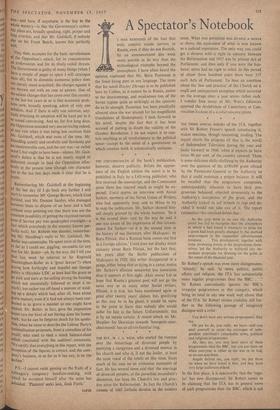THE REV. W. I. S. WEIR, who started the rumpus
over the remarriage of divorced people by marrying a clergyman and a divorced woman in his church and who is, if not the leader, at least the most vocal of the rebels on this issue, bases much of his case on an erroneous statement of fact. He has several times said that 'the marriage of divorced persons, at the parochial incumbent's discretion, has been the Church's law and prac- tice since the Reformation.' In fact the Church's canons of 1603 forbade divorce in the modern
sense. What was permitted was divorce a mensa et thoro, the equivalent of what is now known as a judicial separation. The only way you could get a divorce with' a right to remarry between the Reformation and 1857 was by private Act of Parliament, and then only if you were the hus- band; wives had no right to relief. In this period . of about three hundred years there were 317 such Acts of Parliament. To base an assertion about the law and practice' of the Church on a small and unimportant exception which occurred on the average once a year seems rather rash. 1 wonder how many of Mr. Weir's followers opposed the Archbishop of Canterbury at Con- vocation bxause of a sinilar misconception.


































 Previous page
Previous page